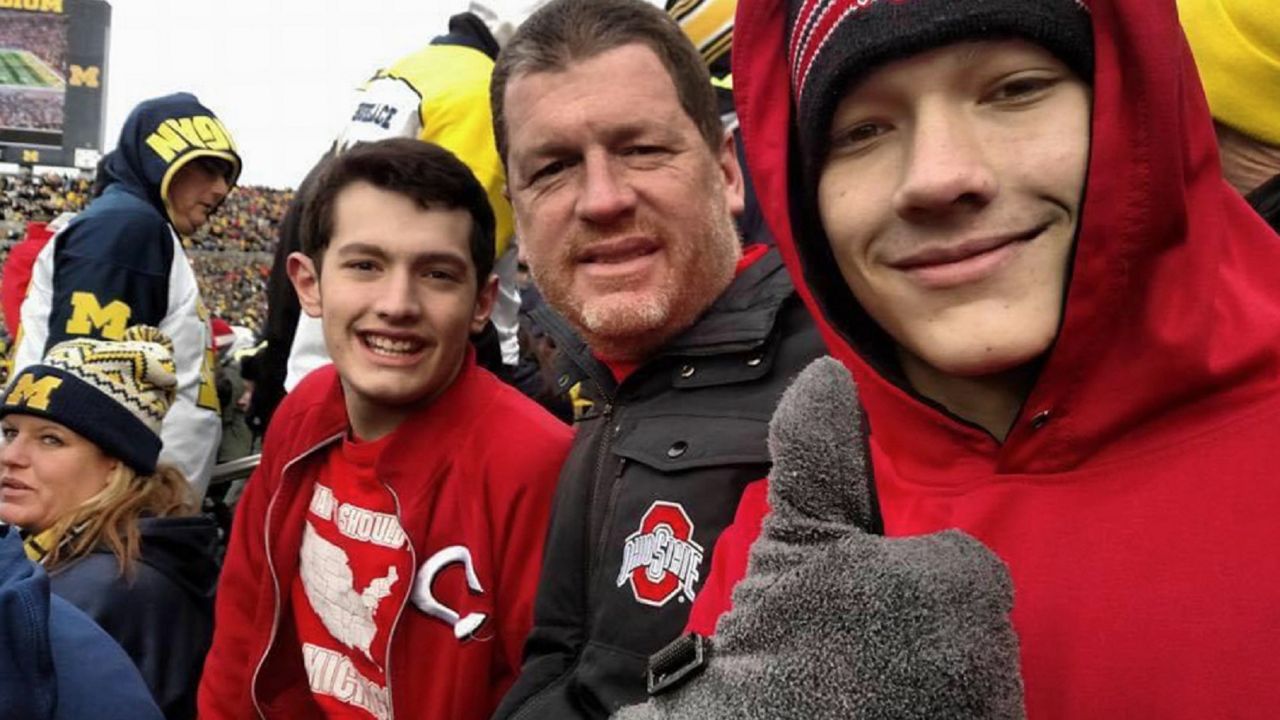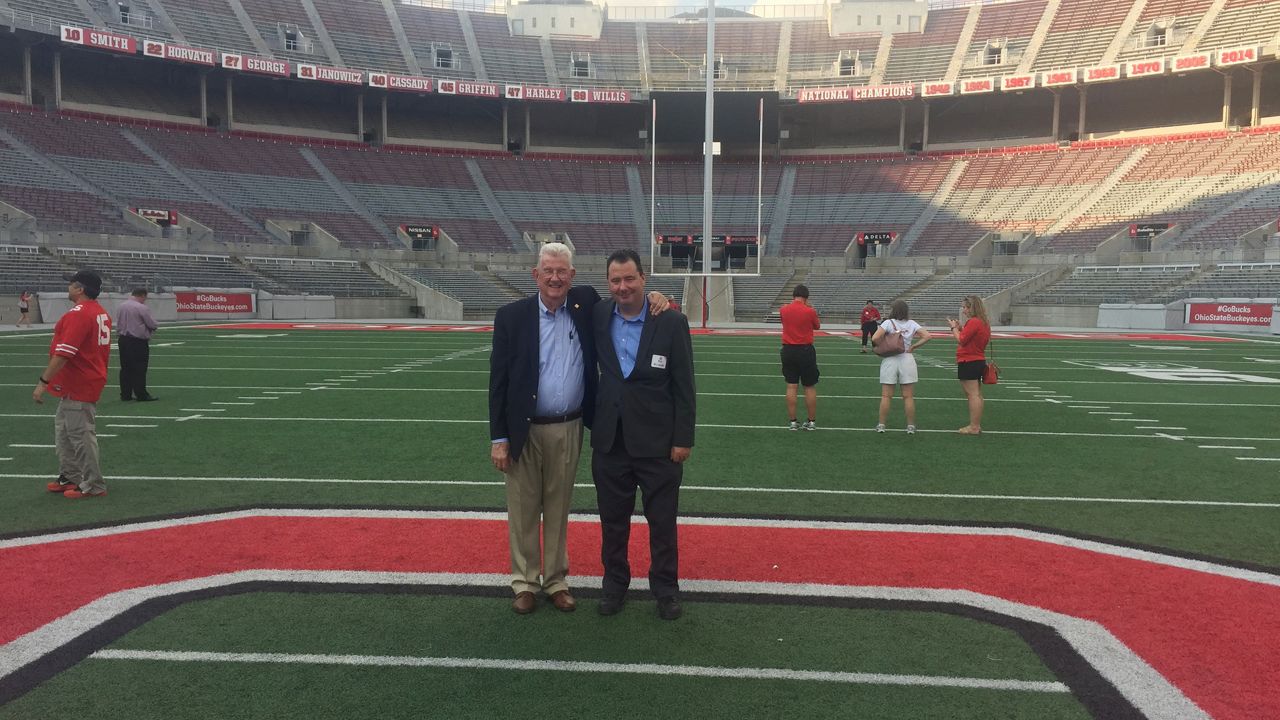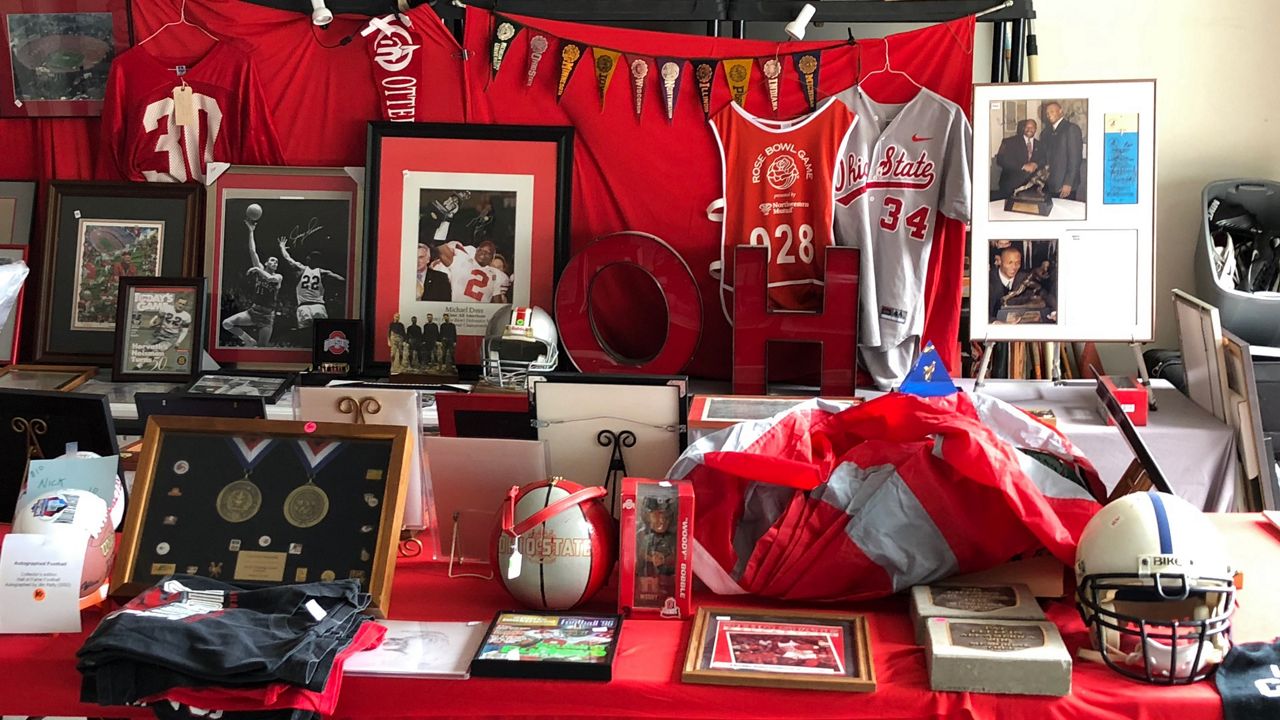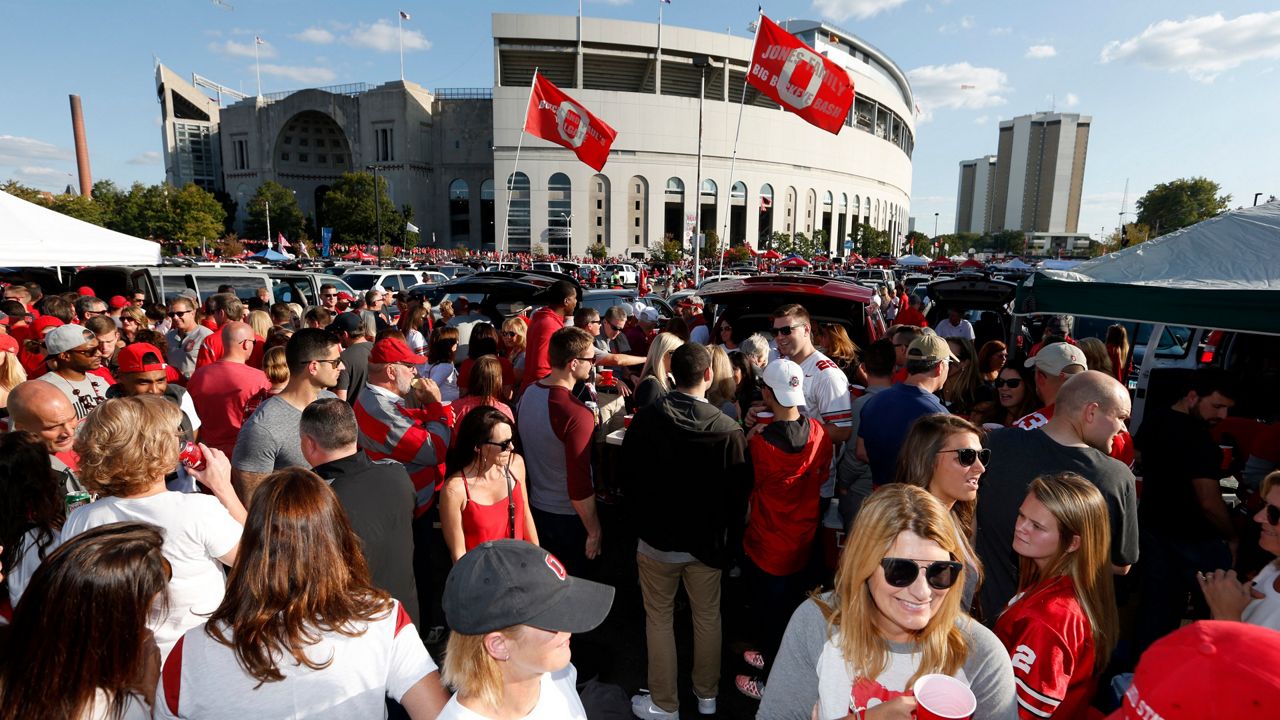COLUMBUS, Ohio — On a normal Saturday, before the Buckeyes kickoff in Columbus, somewhere among the masses of fans reveling on Lane Avenue, you might find ticket broker Randy Clinger on a corner trying to unload the last of his seats or Bob Hoersdig sitting in a lawn chair selling parking spots on behalf of his church at 30 bucks a pop.
What You Need To Know
- The postponement of Ohio State's season comes with an economic toll for game day businesses and side hustles
- Lane Avenue and High Street are bustling with fans and commerce on football Saturdays
- A church will lose 20 percent of its budget that comes from game day parking sales
With the Big Ten season now postponed, Ohio State is facing a revenue loss of as much as $110 million and the bars and restaurants near “the Horseshoe” that thrive on football Saturdays are expecting blows to their sales, but the absence of football also brings a perhaps less obvious toll for the businesses and side hustles of ticket brokers, parking operators, travel agents, merchandise vendors, program sellers and others who have carved out game day niches in Columbus.
Clinger has been selling tickets for two decades outside the Varsity Club bar, a game day landmark, ever since he went to the Final Four in 1999 as a master’s student and found he could sell his $210 student tickets for $5,500 cash to the scalpers who were lined up outside the Ohio State ticket pick-up in Tampa. He had driven 19 hours with a friend to go to the game, but money for four months of bills was too hard to turn down.

After selling their tickets, Clinger and his buddy treated themselves to a lobster dinner. Then, instead of joining his friend at the hotel bar, Clinger decided to take his fat wallet to the street and try his hand at scalping. He hustled tickets for the next 36 hours, making enough to net an additional $900 profit on top of the original $5,300, and managed to score seats to both semi-finals games.
Clinger was hooked, and from then on he has been reselling tickets for Ohio State games.
“The next game I worked was Ohio State football that fall,” he said. “I started from scratch and got a good connection with a guy who works in grounds and maintenance. I bought his tickets and then it just ballooned. I was buying staff and faculty tickets out the wazoo. At one point, I had 280 tickets in my name.”
Business has been slower in recent years with the explosion of eBay, Craigslist, and StubHub chipping away at opportunities for the old-school scalpers.
But with the right connections and the right reputation, there’s still a market.
“I won't drop names, but I have some really big donors and a lot of former football players that I deal with very quietly because the university would not be pleased that they were selling to me. Some of the people are very high up in the university, actually,” he said. “They can trust that I can get rid of their tickets quietly without problems.”
An involved member of the University Baptist Church, Hoersdig has for years acted as a game day salesman for what he calls the church’s “gift from God” – its sizable parking lot steps away from the heart of the tailgating action.
The church has loyal parkers who have been using the lot for 20 years or more. Parking lot sales, which are considered donations to the church, account for 20 percent of its annual budget.
“It's a real significant impact this year. We've had several meetings about it,” said Hoersdig, who is retired after a 40-year career with the U.S. Post Office. “It’s something that was unseen by everybody.”
The parking sales have helped counteract the impacts of declining church membership over the years, he said. The church’s roof, furnace, and air conditioning are old and will need repairs. The lack of parking revenue means a real crunch for the church. “But we will carry on, that's for sure,” he said. “Our experience has been that usually something happens that allows us to meet our budget goals, to keep our building running.”
For now, Hoersdig said it is looking like members will have to chip in a bit more to support the operations of the church, which is not an entity of the university, despite the name.
“As a congregation we’ll all give a little bit more,” he said. “Everyone makes a sacrifice for the good of our church. We think we do good things for people. Our doors are always open.”
Travel agent Ike Reynolds has much higher stakes than Clinger and Hoersdig in the world of Ohio State football entrepreneurship – he got into the business of coordinating trips to away games in 1978 and hadn’t missed a season until this one was axed. From 1978 to 2000, his company, Reynolds Travel, transported the marching band, and it bid each year on the official Ohio State bowl game travel contract, which meant organizing air charters for the players as well as for university officials, including the university president and his traveling party.
In 2000, Reynolds reimagined his business when the university gave that coveted bowl game contract to the corporate agency that handled its day-to-day travel. That year, Reynolds Travel began chartering buses to take fans to away games. It’s the complete package with transportation and accommodations.
“All you have to do is pay up and show up,” Reynolds said.

The bus trips attracted a loyal group of Buckeye fans who attend just about every away game with the travel agency. Typically, the company runs two buses each with 55 fans to Big Ten away games.
“I have so many repeaters that come back every year. They're almost like family,” Reynolds said. “I'm an Ohio State graduate and a crazy Buckeye nut football fan, so I'm in it almost as much as they are.”
The biggest weekends for Reynolds were the non-conference games and bowl games that involved air travel.
“We sort of hit a goldmine in 2002 when the Buckeyes played Miami in Phoenix,” he said. “We took almost 1,500 people to that game.”
This year, Reynolds anticipated the Oregon game to be among the biggest trips they have done in recent years. The Buckeyes have never played in Eugene and the Ducks would have been a quality opponent early in the season. Reynolds expected to take 200 to 250 people to the game. By March, his company had already taken deposits for 50 four-night packages, each costing around $2,000 or more.
“The Oregon trip was going to be a big thing for us,” he said. “It's very devastating, but I think we sort of knew it was coming. I mean, we felt it was coming. We didn't know it, but the writing was on the wall.”
Even though his motor coaches have never missed a game despite some close calls driving through ice, sleet, and snow, Reynolds said he has been doing this long enough to know to avoid non-refundable deposits. Being able to get full refunds for things like the Oregon flights and hotels reservations has been a lifesaver, he said. The loss of revenue from those events is nonetheless a huge hit, especially when the vacation travel side of his business is all but at a standstill right now.
Other Buckeyes fans just make a modest hobby income from their operations.
Longtime Ohio State collector George Hiles has a booth at an antique show where he sells pennants, programs, autographed footballs and player pictures, really anything vintage, he said.
While most of the normal memorabilia that gets created in a season will not be produced this fall, Hiles said collectors will likely hang on to schedule coins and t-shirts printed with the 2020 schedule, and try to flip them as memorabilia of the season that never was. Hiles saw a coin for sale online the other day listed at $50. Local stores were still selling them for $10, he said.

Despite the limited memorabilia, there are still plenty of vintage items to buy and sell. However, the antique show where Hiles sells has been paused due to the pandemic, he said.
“It’s a hobby more than an occupation,” he said. “I'm retired. It just gives me something to do and keeps me active.”
He feels worse for the woman who sells $5 homemade necklaces at Lane and High and for the program sellers who pick up bundles from the stadium and cart them off to their favorite spot on campus where they make a $1.25 sale.
Hiles is big into tickets, with a collection that possibly no one else has – a complete run, from 1945 till last year, of unused tickets. Those are a lot harder to find than used tickets, he said.
“Maybe a guy would have a date to go to the game and his girlfriend couldn't go so he went by himself and had an extra ticket. It’s things like that,” Hiles said.
Michigan tickets are the ultimate prize and the most difficult to obtain, though, he said it is a bit easier when you have a connection with a retired ticket office employee. Hiles’s tickets are too susceptible to damage to display, so he keeps them organized in notebooks. This year will leave an interesting gap, he said.
“Just flip the page and go to next year.”



